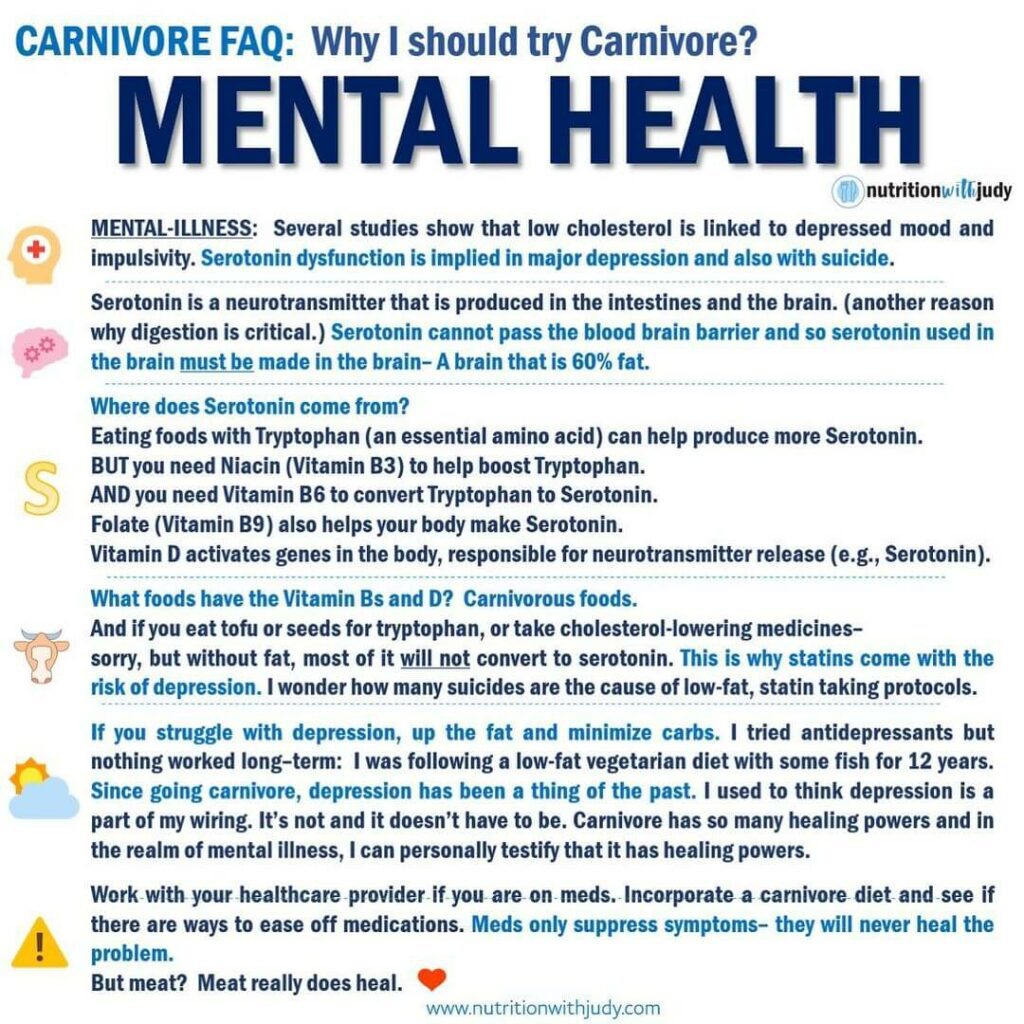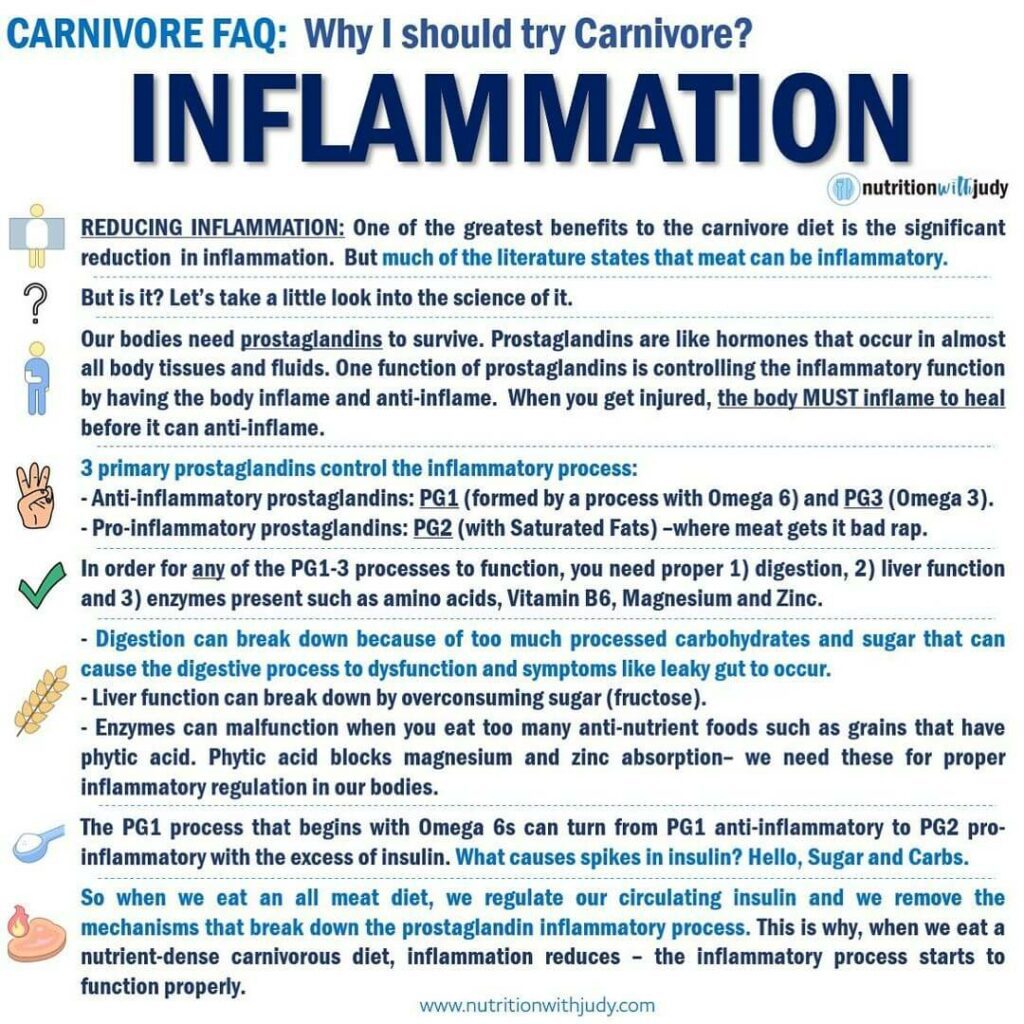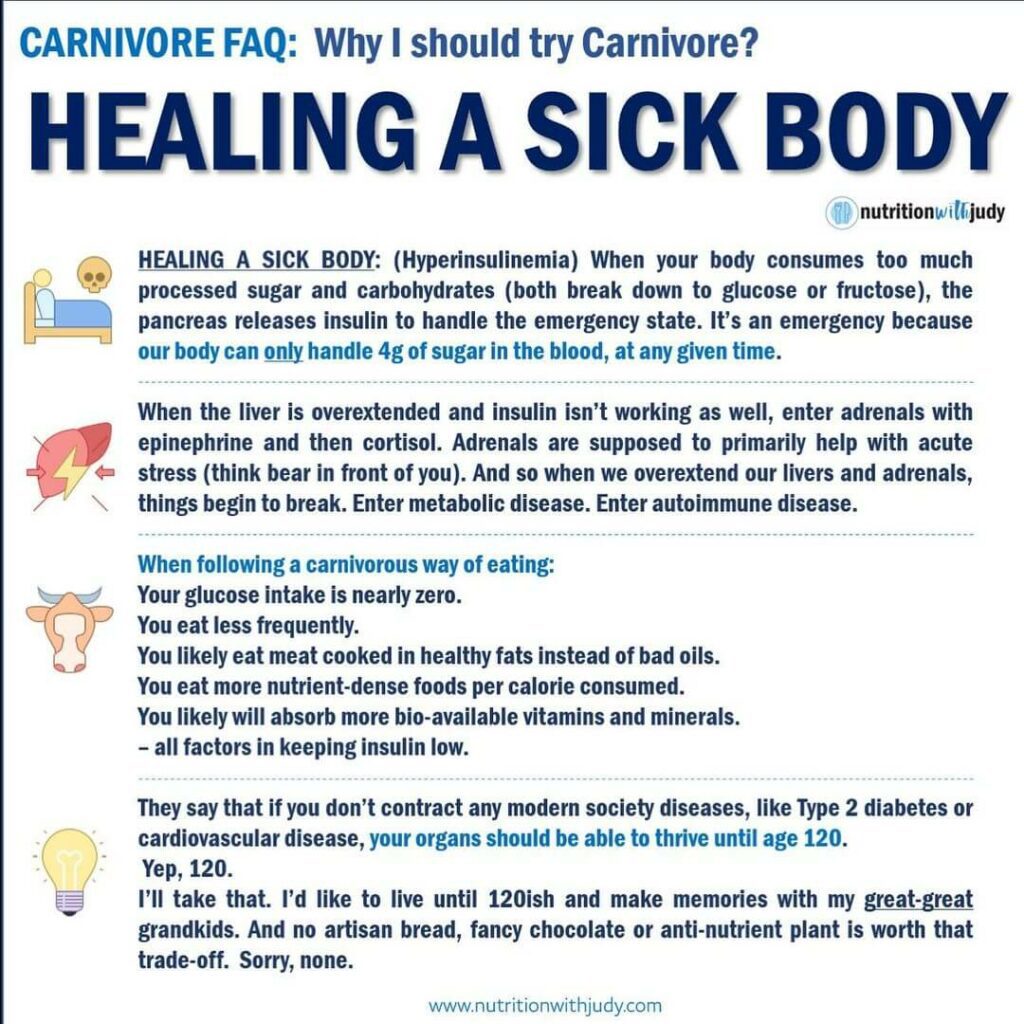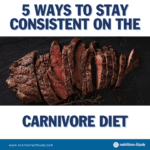

Evaluating Your Carnivore Diet Goals


Embarking on a carnivore diet journey presents a unique opportunity to transform your health, but it’s crucial to start by understanding your personal goals and motivations. Knowing your ‘why’ is not just about setting a destination; it’s about crafting a path that aligns with your values, health needs, and lifestyle preferences.
As we’ve learned through countless success stories, the carnivore diet is not a one-size-fits-all solution. Each individual’s journey is unique, and their outcomes are deeply influenced by their personal goals and commitment. Embracing this diet as the most anti-inflammatory option available, many have found remarkable health improvements, especially those dealing with inflammation-related illnesses.
So, let’s dive into how aligning your goals with the carnivore diet can set the stage for a successful, health-transforming experience.
What Is the Carnivore Diet?
The carnivore diet, at its core, is an elimination diet aimed at optimal health and healing the body. It’s a dietary approach that focuses on consuming animal-based products exclusively, eliminating plant-based foods. This diet has gained popularity due to its potential benefits in addressing various health issues, particularly those related to inflammation and autoimmune conditions.
There are several variations of the carnivore diet, each catering to different health needs and preferences:
- Beef-Only Carnivore Diet: As the name suggests, this variation involves consuming only beef. It’s chosen for its simplicity and is ideal for more sensitive individuals, especially those struggling with severe chronic issues, gut dysfunction, and autoimmunity.
- Lion Diet: Similar to the beef-only diet but less restrictive, the lion diet includes only ruminant meat, salt, and water. Ruminants include beef, lamb, goat, bison, elk, and more. It’s designed for extreme elimination and is often used for intense healing purposes.
- Nose-to-Tail Carnivore Diet: This approach emphasizes consuming all parts of the animal, including organ meats, muscle meats, and bones (often in the form of bone broth). It aims to maximize nutrient intake by utilizing the diverse nutritional profile of different animal parts.
- Zero-Carb Carnivore Diet: The zero-carb carnivore diet includes a variety of meat from the animal kingdom, eggs, and dairy. Technically cheese and eggs have minimal carb content, so this way of eating is zero to nearly-zero carb.
- Carnivore Keto Diet: This variation combines the principles of the ketogenic diet with the carnivore diet, focusing on high-fat, moderate-protein, and almost no carbohydrate intake. It offers a bit more variety with the inclusion of plant foods that are considered to be lower in plant anti-nutrients such as avocados and cucumbers. We recommend this diet for those who have healed, nearly completed healing, and/or are metabolically flexible.
- Carnivore-ish Keto Diet: A less strict version of the carnivore keto diet, this approach allows for minimal plant intake, primarily in the form of low-carb vegetables, nuts, and seeds, while still emphasizing animal products. We recommend this diet for those who are fully healed and metabolically flexible.
- Animal-Based Diet: This diet includes muscle meat, organs, fruit, honey, and raw dairy. In our clinical practice, this diet variation is usually only well-tolerated by elite athletes and individuals who are very metabolically healthy and flexible.
Each of these diets can be tailored to individual needs, based on health goals, nutritional requirements, and personal tolerances. The key is to listen to your body and adjust accordingly to find what works best for you.
What Are the Benefits of the Carnivore Diet?
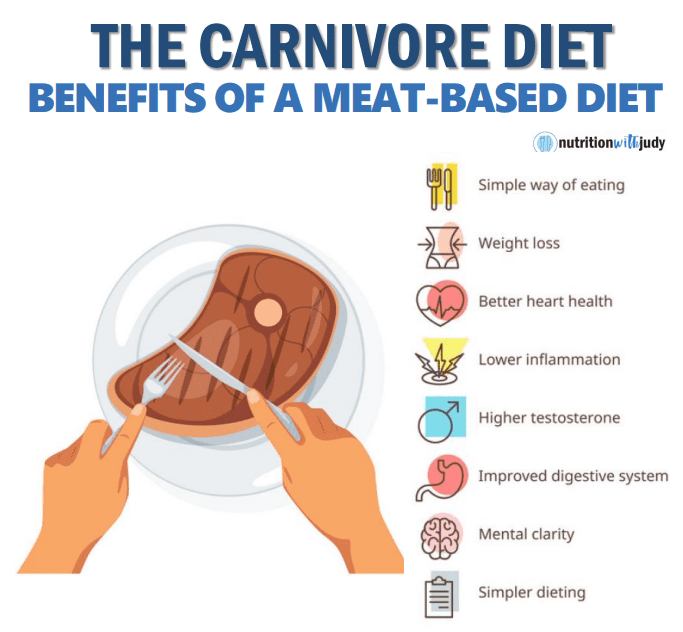

The carnivore diet, characterized by its exclusive focus on animal-based foods, offers a multitude of benefits that have made it a compelling choice for many seeking to improve their health. This diet, by eliminating plant-based foods, serves as an ultimate elimination diet, especially beneficial for those with metabolic diseases, autoimmune conditions, thyroid, and hormone issues. Here is a comprehensive list of the benefits of the carnivore diet:
- Mental Health Improvements: Many individuals have reported significant relief from mental health issues such as depression and anxiety. The carnivore diet has been particularly effective for some in overcoming deep-seated mental illnesses, providing a newfound sense of freedom from the love-hate relationship with food.
- Autoimmune and Inflammatory Conditions: The diet has shown remarkable results in managing and even reversing autoimmune illnesses. Its anti-inflammatory nature helps reduce symptoms and enhance overall physical function.
- Identification and Management of Food Sensitivities: The carnivore diet acts as a tool for identifying food sensitivities. By starting with a clean slate of minimal food varieties, individuals can reintroduce foods gradually to pinpoint sensitivities.
- Nutrient Density and Bioavailability: Animal-based foods are among the most nutrient-dense and bioavailable sources of nutrition. This aspect of the diet makes it particularly effective for healing long-standing health issues.
- Support for Metabolic Health: The diet has shown effectiveness in addressing metabolic diseases, such as type 2 diabetes and high blood pressure, by focusing on nutrient-dense, high-fat, meat-based foods.
- Weight Management: While individual results vary, many find the carnivore diet beneficial in achieving a healthier weight. It’s important to note, however, that weight changes can depend on various factors, including individual metabolic health and diet composition.
- Improved Gut Health: The elimination of plant-based foods, which can sometimes be irritants to the gut, often leads to improved gut health. This can be especially beneficial for those with gut-related issues. Learn more about how the carnivore diet supports gut health here.
- Increased Energy and Physical Performance: The high-protein and high-fat content of the diet provides sustained energy, which can be beneficial for athletes and those leading active lifestyles. Without carbs that can create consistent blood sugar fluctuations, individuals on the carnivore diet often report consistent energy throughout the day.
- Simplicity and Ease of Adherence: The straightforward nature of the diet, focusing mainly on meat, makes it easy to understand and follow, thereby increasing adherence and long-term success.
- Potential Reduction in Medication Dependence: Many individuals have reported a reduced need for certain medications, especially those related to mental health and metabolic conditions.
- Holistic Health Approach: By focusing on whole, unprocessed foods, the carnivore diet aligns with a holistic approach to health, emphasizing the importance of quality nutrition.
- Variability to Suit Individual Needs: The carnivore diet can be adjusted to suit individual health needs, dietary preferences, and goals, making it a versatile option for many.
In summary, the carnivore diet offers a range of benefits that can cater to various health goals and conditions. Its focus on high-quality animal foods, elimination of potential irritants, and simplicity make it an appealing dietary approach for those looking to improve their health holistically. However, as with any diet, individual experiences may vary, and it’s important to consider personal health needs and consult with trusted healthcare professionals when making significant dietary changes.
Who Should Try the Carnivore Diet?
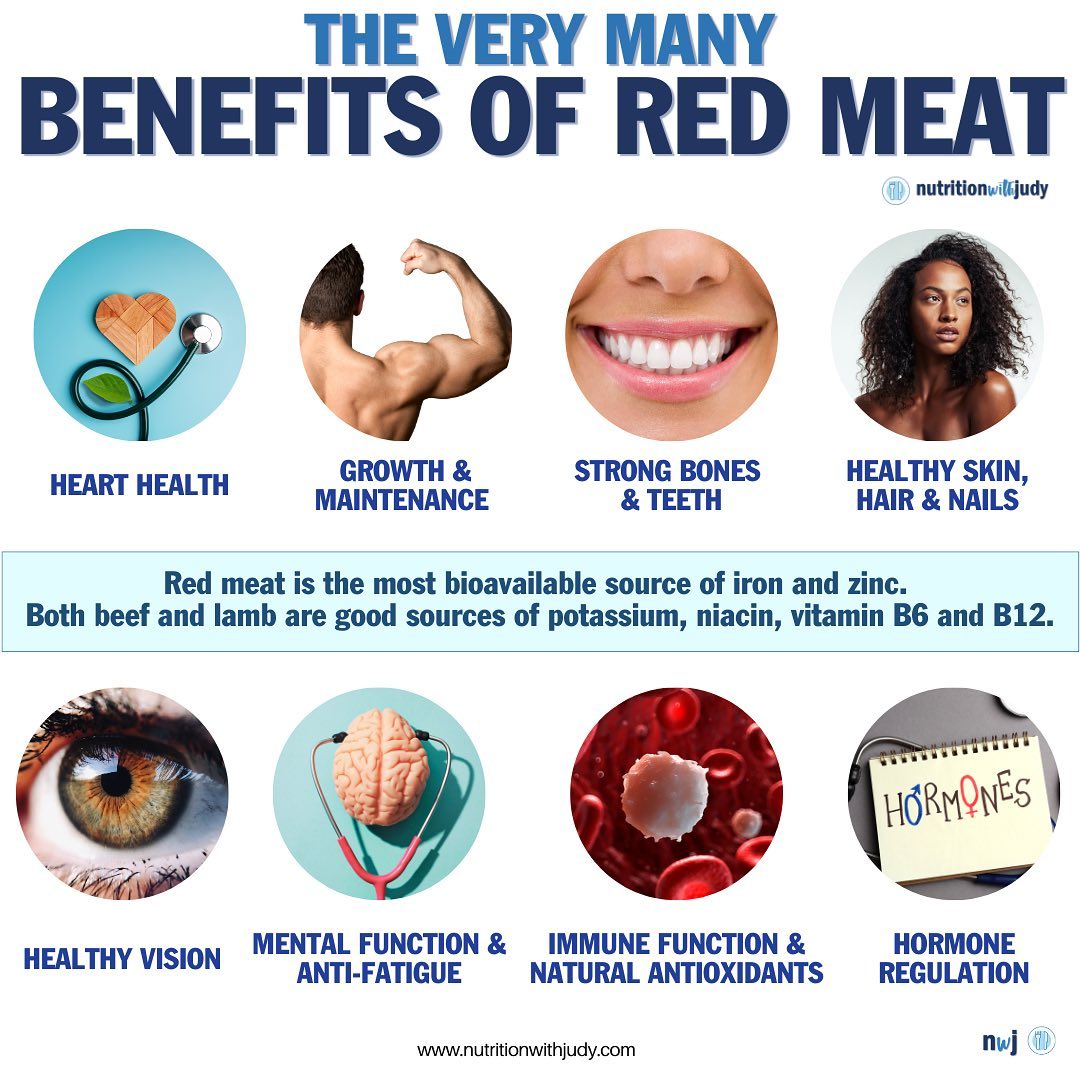

The carnivore diet, renowned for its focus on animal-based foods, offers a unique approach to health and wellness. This diet is particularly beneficial for individuals dealing with specific health challenges or those seeking a comprehensive dietary overhaul. Here’s a summary of who might consider trying the carnivore diet and how it can be customized:
- Individuals with Mental Health Issues: The diet has shown promise for those struggling with mental health conditions like depression and anxiety, offering an alternative path to mental wellness.
- People with Autoimmune Diseases: Those suffering from autoimmune disorders may find relief through the carnivore diet. Its elimination nature helps identify and remove food triggers, thereby reducing inflammation and symptoms.
- Those Testing for Food Sensitivities: The carnivore diet can be an effective tool for individuals trying to identify food sensitivities. Its elimination approach simplifies the process of determining which foods may be causing adverse reactions.
- Athletes and Physically Active Individuals: Active individuals, including athletes, may benefit from the high-protein, high-fat content of the diet, which supports energy needs and muscle recovery.
- People with Metabolic and Digestive Issues: Individuals with conditions such as insulin resistance, gut issues, or other metabolic diseases might find the carnivore diet helpful in managing and potentially reversing these conditions.
- Those with Food Addictions or Eating Disorders: For some, the carnivore diet’s restrictive nature can help break cycles of food addiction or disordered eating patterns, providing a structured and simple dietary framework.
Customization of the Carnivore Diet
- Adjusting Fat and Protein Ratios: Individuals can tailor the fat-to-protein ratio based on their energy needs, health goals, and personal preferences.
- Inclusion of Dairy or Eggs: While some may stick to strictly meat, others might include dairy products or eggs to diversify their nutrient intake and add variety.
- Variety of Animal-Based Foods: The diet can be adapted to include a range of meats, including beef, poultry, fish, and organ meats, to cater to nutritional needs and taste preferences.
- Short-Term vs. Long-Term Approach: Some may adopt the carnivore diet as a short-term elimination protocol, while others might find it sustainable as a long-term lifestyle choice.
- Incorporating Organ Meats: Including organ meats can enhance the nutritional profile, providing essential vitamins and minerals that might be less abundant in muscle meats.
- Listening to the Body’s Signals: Customization should be guided by individual responses and health changes, adjusting the diet as needed to ensure optimal health outcomes.
In conclusion, the carnivore diet can be a versatile and effective dietary approach for a wide range of individuals, particularly those facing specific health challenges. By customizing the diet to individual needs, it becomes a powerful tool for health optimization and personal wellness.
Knowing Your Carnivore Diet ‘Why’
Determining long-term goals for the carnivore diet is crucial for several reasons. It helps individuals choose the right variation of the diet, keeps them motivated, and ensures they can navigate life’s challenges while sticking to their dietary plan.
1. Personalized Health Objectives: The carnivore diet can address a wide range of health concerns, from mental health issues to autoimmune diseases, gut issues, and metabolic disorders. Setting long-term goals helps individuals tailor the diet to their specific health needs, whether it’s improving mental well-being, managing autoimmune conditions, or enhancing athletic performance.
2. Identifying Suitable Diet Variation: There are multiple variations of the carnivore diet, each catering to different needs and preferences. Understanding one’s long-term goals allows for the selection of the most appropriate variation, whether it’s a strict all-beef diet, a version that includes dairy, or a more flexible approach that incorporates occasional plant foods.
3. Motivation and Commitment: Establishing clear goals can greatly enhance motivation and commitment. Knowing what you aim to achieve – be it weight loss, better mental clarity, or relief from chronic symptoms – can keep you focused, especially during challenging times.
4. Adapting to Life’s Challenges: Real-life scenarios often test our dietary choices. By having a clear understanding of why you’re following the carnivore diet, you can make informed decisions and adjustments when faced with social events, travel, or other disruptions.
5. Overcoming Plateaus or Setbacks: If progress stalls or symptoms persist, having defined goals can guide further adjustments. It helps in assessing whether the diet is acting as a mere bandaid or truly addressing the root cause of health issues. This understanding is crucial for making necessary changes or seeking additional support.
6. Continuous Learning and Adaptation: As with any dietary approach, the carnivore diet requires ongoing learning and adaptation. Long-term goals provide a framework for evaluating new information and experiences, ensuring that the diet continues to align with individual health needs and scientific advancements.
7. Preventing Nutrient Excess or Deficiency: A well-planned carnivore diet, aligned with long-term health goals, can help prevent issues related to nutrient excess or deficiency. This balance is crucial for avoiding potential adverse effects on liver health and overall well-being.
8. Addressing Specific Health Conditions: For those with specific health conditions like biotoxin illnesses or thyroid imbalances, long-term goals can guide the inclusion of specific foods or supplements that support healing and recovery.
Setting long-term goals for the carnivore diet is essential for tailoring the diet to individual needs, staying motivated, and effectively navigating the various challenges that might arise. It ensures that the diet serves as a comprehensive tool for health and well-being, rather than a temporary fix. By understanding and setting these goals, individuals can embark on a carnivore diet journey that is not only sustainable but also optimally beneficial for their unique health situation.
How Personality Types Can Impact How You Do On the Carnivore Diet
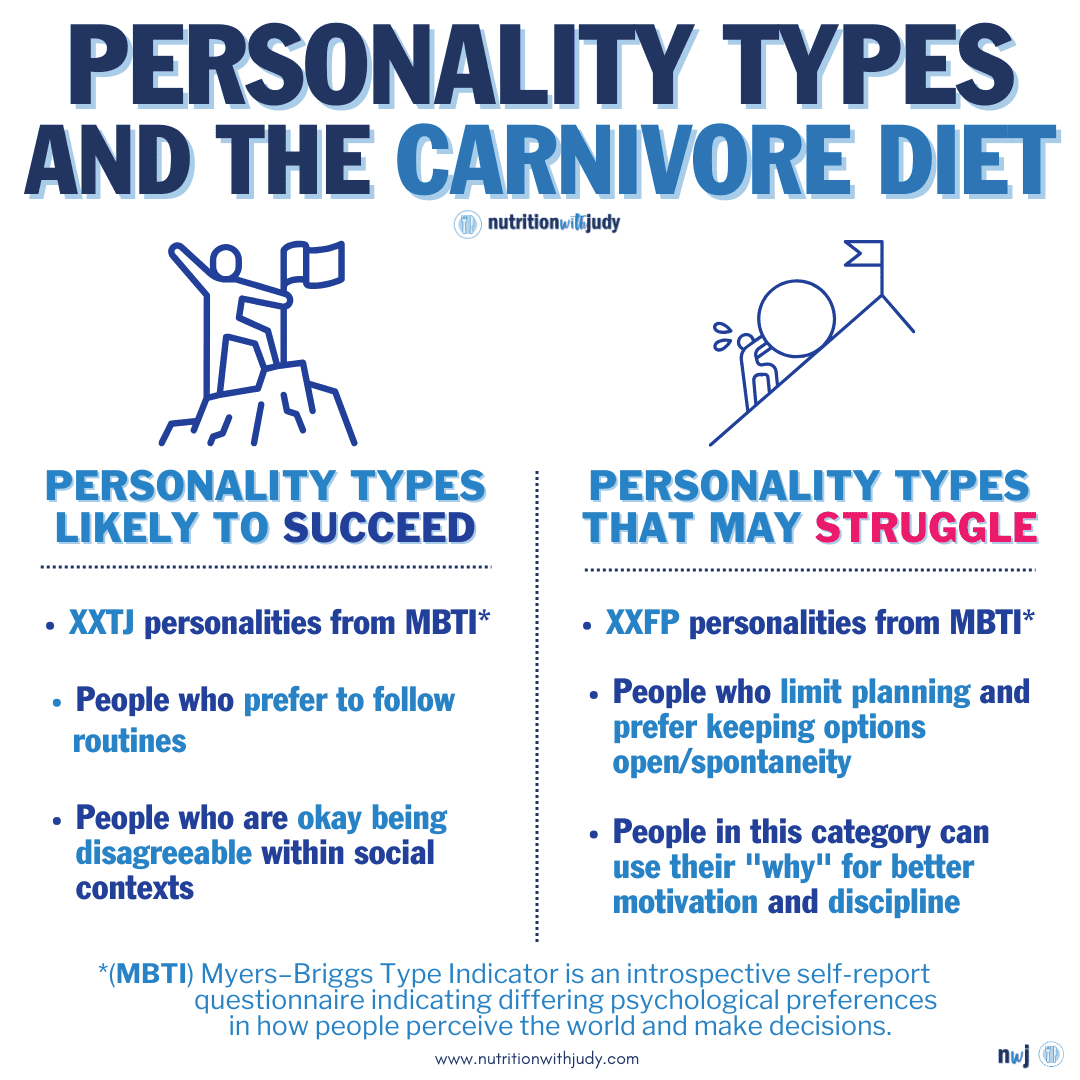

Personality types can significantly impact how individuals fare on the carnivore diet, particularly in terms of adherence and dealing with temptations or ‘cheating’. Different personality traits influence how one approaches dieting and lifestyle changes, which can either facilitate or hinder success on the carnivore diet.
1. Discipline and Structure: Individuals with a disciplined and structured personality may find it easier to adhere strictly to the carnivore diet. They are likely to be consistent and less prone to deviate from the diet, even in challenging situations.
2. Flexibility and Adaptability: Those with a more flexible personality might be better at adapting the carnivore diet to fit their lifestyle and preferences. They may find ways to incorporate variety within the diet’s constraints, which can make it more sustainable for them in the long term.
3. Impulsivity and Spontaneity: People who are impulsive or spontaneous may struggle more with strict dietary adherence. They might find themselves more tempted to ‘cheat’ or deviate from the diet, especially in social settings or under stress.
4. Openness to Experience: Those who are open to new experiences may embrace the carnivore diet with curiosity and enthusiasm, experimenting with different foods within the diet’s framework. This trait can make the diet more enjoyable and less monotonous.
5. Conscientiousness: Highly conscientious individuals are likely to plan their meals carefully and stick to their dietary goals. Their attention to detail can help in meticulously following the carnivore diet without deviations.
6. Stress Response: How one responds to stress can also impact diet adherence. Individuals who turn to food for comfort might find it more challenging to stick to the carnivore diet during stressful periods.
7. Goal-Oriented Nature: Those who are goal-oriented may be more motivated to stick to the carnivore diet if they have clear objectives, such as weight loss, improved health markers, or better athletic performance.
8. Social Influences: Personality traits that influence social interactions can also play a role. People who are highly social and often dine out may find it more challenging to adhere to the diet due to limited food options in social settings.
Understanding one’s personality type can be crucial in tailoring the carnivore diet for long-term success. Recognizing personal traits can help in developing strategies to maintain adherence, manage temptations, and make the diet a sustainable part of one’s lifestyle. Learn more about different personality types and how they might fare on the carnivore diet here. It’s about finding a balance that works for the individual, considering their unique personality characteristics and life circumstances.
The Importance of Community Support for Sustaining a Carnivore Diet


Community support plays a vital role in sustaining a carnivore diet. It provides camaraderie, a sense of belonging, and a network of like-minded individuals who share similar dietary journeys. This support system is crucial, especially when embarking on a diet that significantly deviates from conventional eating patterns.
Camaraderie, Accountability, and Encouragement
Being part of a community allows individuals to share their experiences, challenges, and successes. This exchange can be incredibly motivating and reassuring, especially for those new to the carnivore diet or those facing obstacles. Community members often hold each other accountable, providing encouragement and support. This can be instrumental in helping individuals stay on track, particularly during periods of low motivation or when facing temptations.
Resources and Emotional Support
Communities serve as valuable resources for learning and sharing information. Members can exchange tips, recipes, and advice on how to navigate various aspects of the carnivore diet, enhancing each other’s knowledge and experience. Transitioning to a carnivore diet can be challenging, both physically and emotionally. Community support offers a platform for emotional reassurance, helping individuals to cope with changes and challenges.
Personalized Assistance
In cases where individuals do not find complete resolution of their health issues within the community, our Nutrition with Judy team steps in. We provide personalized assistance, leveraging our experience with complex cases to offer tailored strategies and interventions. This level of support is especially beneficial for those who face unique health challenges or who have not fully benefited from standard approaches.
Closing Thoughts On Carnivore Diet Goals
Evaluating your carnivore diet goals is essential for a successful and sustainable journey. Understanding the ‘why’ behind your decision to embark on this diet is crucial. It aligns your path with your health needs, lifestyle preferences, and values. The carnivore diet, known for its focus on animal-based foods, addresses various health issues.
The diet offers a range of benefits, including mental health improvements, autoimmune and inflammatory condition management, identification of food sensitivities, and support for metabolic health. It’s suitable for a wide array of individuals, from those with specific health conditions to athletes and those exploring dietary changes for overall well-being. The role of personality types is crucial in determining adherence to the diet, as traits like discipline, flexibility, and impulsivity directly impact diet sustainability. Community support plays a vital role in maintaining motivation and adherence, providing a network of shared experiences, resources, and emotional support.
In summary, evaluating and tailoring the carnivore diet based on personal goals, health needs, personality, and community support ensures a more effective and personalized approach to health and wellness.
Work With Our Trusted Carnivore Diet Functional Nutritional Therapy Practitioners
The Nutrition with Judy practice is honored to be a trusted carnivore diet practitioner support serving clients from around the globe. We’re passionate about helping our clients achieve root-cause healing in order to lead the best quality of life possible that’s nearly symptom-free. Our team is dedicated to educating our community about the incredible benefits of the carnivore diet. We welcome you to explore our free resources and are always available to support you through personalized protocols. Our Symptom Burden Assessment (SBA) is the perfect starting point for discovering your root cause and is required to work with our team— you can learn more in-depth about this powerful tool here.
Start your root-cause healing journey today and contact us any time with any questions or concerns.
DISCLAIMER: This content is for educational purposes only. While we are board-certified in holistic nutrition and are nutritional therapy practitioners, we are not providing medical advice. Whenever you start a new diet or protocol, always consult with your trusted practitioner first.


